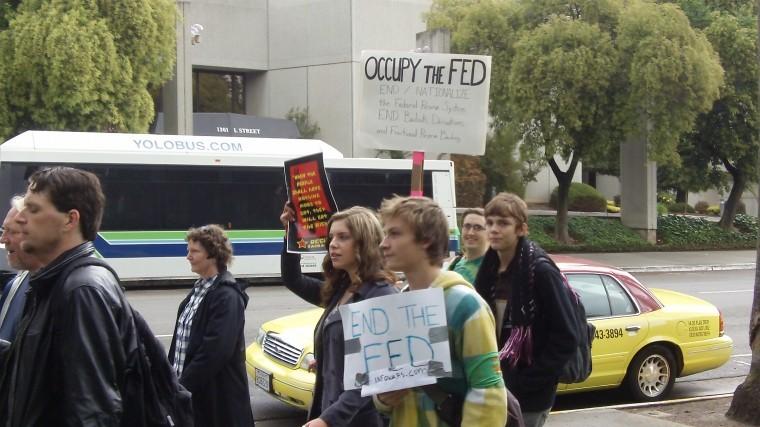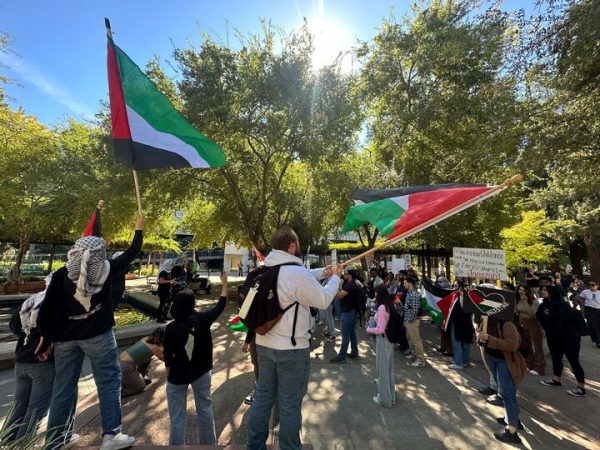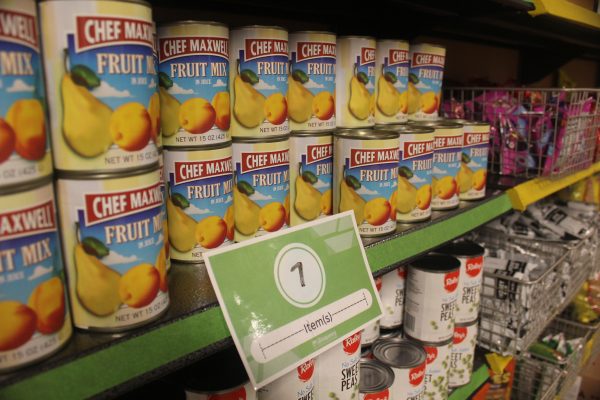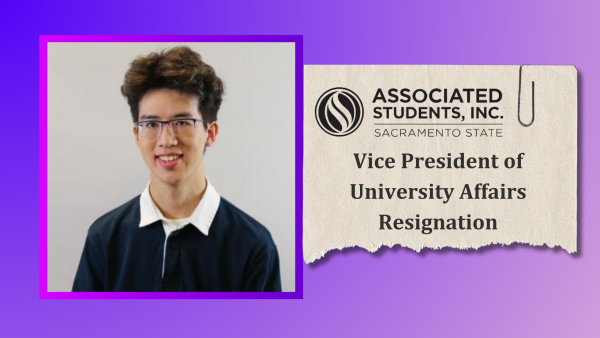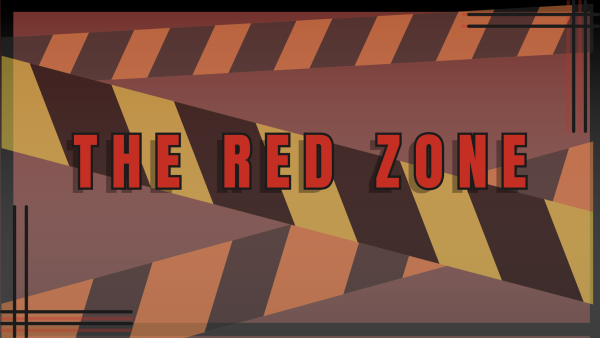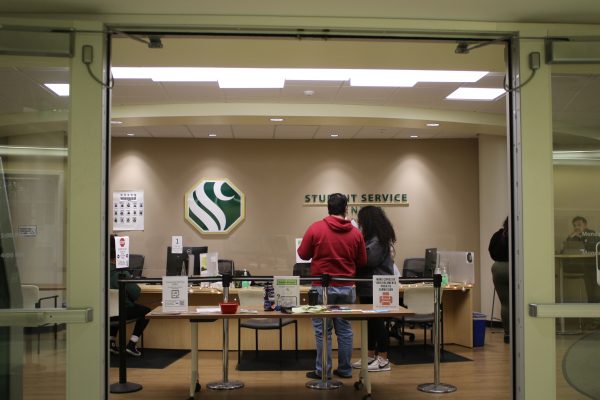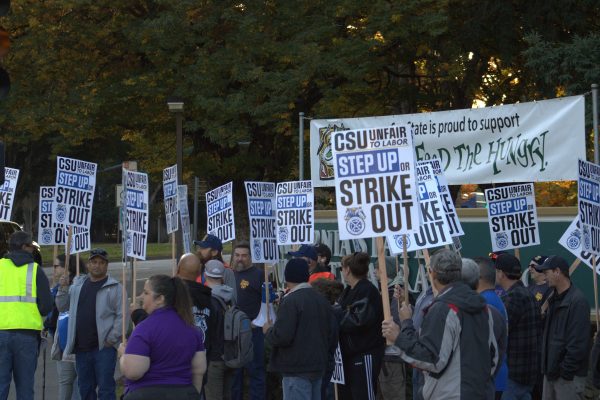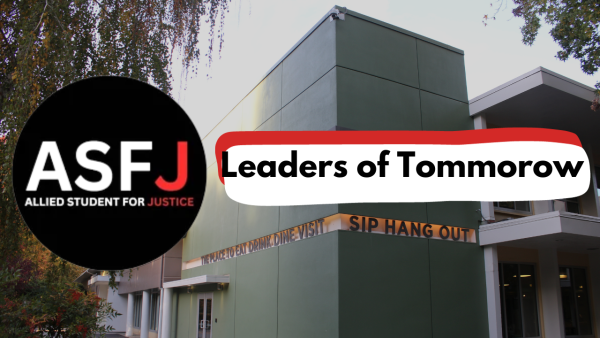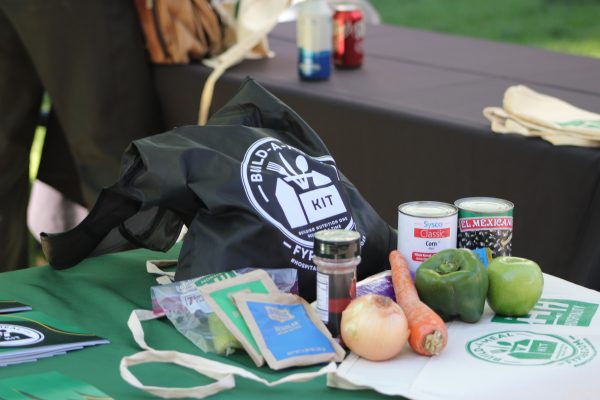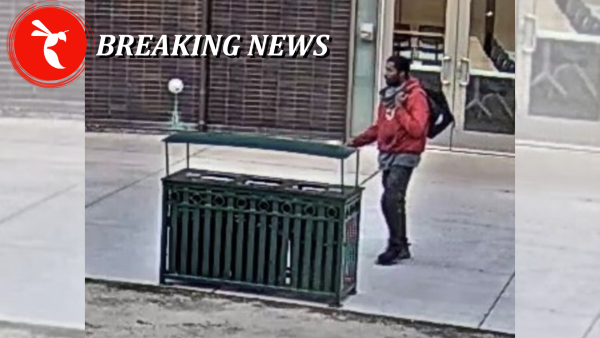Sacramentans mobilize against injustice
October 13, 2011
Hundreds of protesters began marching at Capitol Park Thursday morning for “Occupy Sacramento,” an extension of “Occupy Wall Street,” which has been building in New York City due to the Wall Street bailout and unfair taxation.
“One day we are going to leave here,” said speaker Kevin Carter. “But before we do leave here, what are we going to do to make a difference for one another?”
Citizens of Sacramento and surrounding cities gathered to voice their discontent with Wall Street. Though Wall Street is the focus, for many marchers it is much more personal.
“We lost our home due to unfair lending practices caused by the big banks,” said protester Carlos Fernandez. ” I am exercising my voice to speak out against the corruption on Wall Street and the unfair distribution of wealth in our country.”
Participants chanted as they marched, “they got bailed out, we got sold out.”
“I have two children in college,” Fernandez said. “My concern is when they get their degrees they will come home to no jobs because everything has been outsourced.”
The protest started in New York three weeks ago and many Americans were not able to attend.
“I couldn’t get there,” said Woodland resident Greg Adams. “I’m disabled and live in California. So when it sprouted up and started coming to different cities, I was ecstatic.”
Adams said it is a really unique movement because it is virtually leaderless and seems much like what is going on in Egypt with social networking.
Other participants attended in the name of future generations.
“I am a grandparent,” said protester Chris Niehaus. “My son-in-law works 40 hours a week. He’s got no pension, no health benefits and my daughter had to drop out of state university because the tuition is too high. I am down here for my granddaughter.”
Niehaus said he was informed of the protest via Facebook and also attended the first general assembly meeting in Fremont Park.
Protesters carried poster boards, cardboard, pieces of paper and numerous other media with messages from “this is what democracy looks like” to “one country, one constitution, one people, not one percent.”
“It seems to get harder and harder for us to make advancements in living conditions and economic social status,” Fernandez said.
Benjamin Dewey can be reached at [email protected].



































































































































